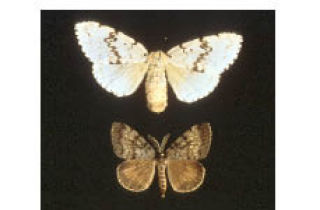State officials target pests with annual hunt
For 35 years, the Washington State Department of Agriculture has kept the gypsy moth out of Washington. With the help of nearly 30 seasonal gypsy moth trappers, officials hope that record continues.
In June, WSDA began its annual gypsy moth summer trapping program, placing more than 23,000 small, tent-shaped cardboard traps throughout the state to identify any new introductions of the destructive pest. Traps are being checked every two to three weeks this summer, and will be taken down in September.
If multiple catches are made in an area over two years or other evidence of gypsy moth activity is noted, an eradication treatment in the area might occur the following spring.
Trappers have hung 5,500 traps in King County, the most of any county in the state.
Among those areas of the county being heavily trapped because of past gypsy moth activity or the threat of the more destructive Asian gypsy moth are:
• In Auburn in the parking lot of the Emerald Downs race track
• In Kent near the intersection of Kent-Des Moines Road S. and the West Valley Highway
• In Federal Way near the intersection of 298th Street S. and 33rd Avenue S.
• The Port of Seattle because of the threat of Asian gypsy moths coming off foreign ships at the port
• In north Seattle near the intersection of Roosevelt Way NE and NE 88th Street.
• North of Bitter Lake in Seattle near the intersection of N. 137th Street and Winegard Court N.
Tracy Shirek, trapping coordinator for King County, is confident her trappers will spot any new introductions.
“We’re working hard,” Shirek said. “We want to identify infestations when they’re small and then eradicate them. We want to keep Washington the Evergreen State.”
The gypsy moth is one of the worst forest pests ever brought to the U.S. In its caterpillar form, the pest attacks more than 500 species of trees and shrubs, causing millions of dollars of environmental and economic damage across the country each year.
The moth now is permanently established in 19 states in the East and upper Midwest.
Last summer alone, gypsy moth larvae defoliated more than a million acres of trees in the U.S.
In addition to the 5,500 traps set in King County, 2,000 have been placed in Pierce, 1,500 in Snohomish and 1,200 in Thurston County, as well as many others elsewhere in the state.
For more information on Washington’s gypsy moth control program, call the gypsy moth hotline at 800-443-6684.



